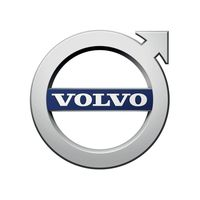The Shifting Landscape of Electric Vehicles: Desay SV and Tesla's Diverging Paths
August 29, 2024, 4:42 pm
The electric vehicle (EV) market is a battleground. Companies are vying for dominance, and strategies are shifting like sand. Two players stand out: Desay SV and Tesla. Each has a unique approach to the challenges and opportunities in this rapidly evolving industry.
Desay SV, a Chinese mobility technology company, recently showcased its vision at the 4th Technology Festival in Huizhou. The theme was "Unlimited Intelligence." It was a bold statement. The company is not just about cars; it’s about intelligent mobility solutions. With over 30 products on display, Desay SV is pushing the envelope. From integrated domain controllers to advanced driving sensors, the company is laying the groundwork for the future of transportation.
In contrast, Tesla is navigating a different storm. The Canadian government has imposed a 100% tariff on Chinese-made EVs. This decision follows a similar move by the United States. Tesla, known for its innovation, is now facing hurdles. Before the tariff announcement, Tesla sought a lower rate from Canada. They wanted a deal similar to what they received in the European Union. But the landscape has changed. The EU has softened its stance, imposing a 9% tariff on Tesla’s Chinese-made vehicles. Meanwhile, Canada has taken a hard line.
Desay SV's growth story is compelling. The company reported a revenue of RMB 11.69 billion in mid-2024, a 34.02% increase year-on-year. This growth is not a fluke. It stems from a philosophy of long-termism. Desay SV is not just reacting to market trends; it’s anticipating them. The company’s focus on research and development is unwavering. They aim to be the preferred partner in mobility transformation. This vision is clear. Desay SV is building a future where intelligent mobility is the norm.
The Technology Festival was a showcase of innovation. Desay SV presented cutting-edge products that promise to redefine the driving experience. The cabin-driving integrated domain controllers and intelligent driving sensors are just the tip of the iceberg. The festival also offered hands-on experiences with vehicles equipped with Desay SV technology. This approach is about more than just showcasing products; it’s about creating an immersive experience for potential partners and customers.
On the other hand, Tesla’s situation is precarious. The Canadian tariff is a significant blow. It complicates Tesla’s plans to expand its market share in Canada. The company has been shipping Model 3 and Model Y vehicles from Shanghai to Vancouver. Now, those shipments face a steep barrier. The Canadian government’s decision is rooted in concerns over China’s state-directed policies and industrial over-capacity. This creates a challenging environment for Tesla, which has thrived on innovation and market agility.
The U.S. has also tightened its grip. President Biden announced a quadrupling of tariffs on Chinese EVs. This includes a 100% duty on vehicles like Tesla’s. The implications are vast. Tesla has never shipped China-made models to the U.S., but the ripple effects are felt across the industry. Competitors like Volvo and Polestar are also assessing the impact of these tariffs. The EV market is becoming a chess game, with each move having far-reaching consequences.
Desay SV’s internationalization strategy is noteworthy. The company has established R&D and service branches in multiple countries, including Germany, Japan, and the U.S. This global footprint allows Desay SV to tap into diverse markets and customer needs. The company’s commitment to understanding market demands is evident. They are not just selling products; they are building relationships. This approach enhances customer satisfaction and strengthens the value chain.
Tesla, however, is in a defensive position. The company’s request for a lower tariff reflects its need to adapt quickly. The EV market is dynamic, and Tesla must navigate these challenges with agility. The Canadian government’s decision is a wake-up call. It underscores the complexities of international trade and the impact of geopolitical tensions on business operations.
As the EV landscape evolves, the strategies of Desay SV and Tesla will continue to diverge. Desay SV is focused on innovation and long-term growth. Their commitment to R&D and customer relationships positions them well for the future. Tesla, while still a leader in the market, faces significant challenges. The tariffs are a hurdle, but they also present an opportunity for the company to reassess its strategies.
In conclusion, the electric vehicle market is a complex web of opportunities and challenges. Desay SV is carving out a niche with its innovative solutions and long-term vision. Tesla, on the other hand, is grappling with the realities of international trade and tariffs. The road ahead is uncertain, but one thing is clear: the race for electric mobility is far from over. Each company must navigate its path, adapting to the shifting landscape of the automotive industry. The future of transportation is being written today, and both Desay SV and Tesla are key players in this unfolding story.
Desay SV, a Chinese mobility technology company, recently showcased its vision at the 4th Technology Festival in Huizhou. The theme was "Unlimited Intelligence." It was a bold statement. The company is not just about cars; it’s about intelligent mobility solutions. With over 30 products on display, Desay SV is pushing the envelope. From integrated domain controllers to advanced driving sensors, the company is laying the groundwork for the future of transportation.
In contrast, Tesla is navigating a different storm. The Canadian government has imposed a 100% tariff on Chinese-made EVs. This decision follows a similar move by the United States. Tesla, known for its innovation, is now facing hurdles. Before the tariff announcement, Tesla sought a lower rate from Canada. They wanted a deal similar to what they received in the European Union. But the landscape has changed. The EU has softened its stance, imposing a 9% tariff on Tesla’s Chinese-made vehicles. Meanwhile, Canada has taken a hard line.
Desay SV's growth story is compelling. The company reported a revenue of RMB 11.69 billion in mid-2024, a 34.02% increase year-on-year. This growth is not a fluke. It stems from a philosophy of long-termism. Desay SV is not just reacting to market trends; it’s anticipating them. The company’s focus on research and development is unwavering. They aim to be the preferred partner in mobility transformation. This vision is clear. Desay SV is building a future where intelligent mobility is the norm.
The Technology Festival was a showcase of innovation. Desay SV presented cutting-edge products that promise to redefine the driving experience. The cabin-driving integrated domain controllers and intelligent driving sensors are just the tip of the iceberg. The festival also offered hands-on experiences with vehicles equipped with Desay SV technology. This approach is about more than just showcasing products; it’s about creating an immersive experience for potential partners and customers.
On the other hand, Tesla’s situation is precarious. The Canadian tariff is a significant blow. It complicates Tesla’s plans to expand its market share in Canada. The company has been shipping Model 3 and Model Y vehicles from Shanghai to Vancouver. Now, those shipments face a steep barrier. The Canadian government’s decision is rooted in concerns over China’s state-directed policies and industrial over-capacity. This creates a challenging environment for Tesla, which has thrived on innovation and market agility.
The U.S. has also tightened its grip. President Biden announced a quadrupling of tariffs on Chinese EVs. This includes a 100% duty on vehicles like Tesla’s. The implications are vast. Tesla has never shipped China-made models to the U.S., but the ripple effects are felt across the industry. Competitors like Volvo and Polestar are also assessing the impact of these tariffs. The EV market is becoming a chess game, with each move having far-reaching consequences.
Desay SV’s internationalization strategy is noteworthy. The company has established R&D and service branches in multiple countries, including Germany, Japan, and the U.S. This global footprint allows Desay SV to tap into diverse markets and customer needs. The company’s commitment to understanding market demands is evident. They are not just selling products; they are building relationships. This approach enhances customer satisfaction and strengthens the value chain.
Tesla, however, is in a defensive position. The company’s request for a lower tariff reflects its need to adapt quickly. The EV market is dynamic, and Tesla must navigate these challenges with agility. The Canadian government’s decision is a wake-up call. It underscores the complexities of international trade and the impact of geopolitical tensions on business operations.
As the EV landscape evolves, the strategies of Desay SV and Tesla will continue to diverge. Desay SV is focused on innovation and long-term growth. Their commitment to R&D and customer relationships positions them well for the future. Tesla, while still a leader in the market, faces significant challenges. The tariffs are a hurdle, but they also present an opportunity for the company to reassess its strategies.
In conclusion, the electric vehicle market is a complex web of opportunities and challenges. Desay SV is carving out a niche with its innovative solutions and long-term vision. Tesla, on the other hand, is grappling with the realities of international trade and tariffs. The road ahead is uncertain, but one thing is clear: the race for electric mobility is far from over. Each company must navigate its path, adapting to the shifting landscape of the automotive industry. The future of transportation is being written today, and both Desay SV and Tesla are key players in this unfolding story.

